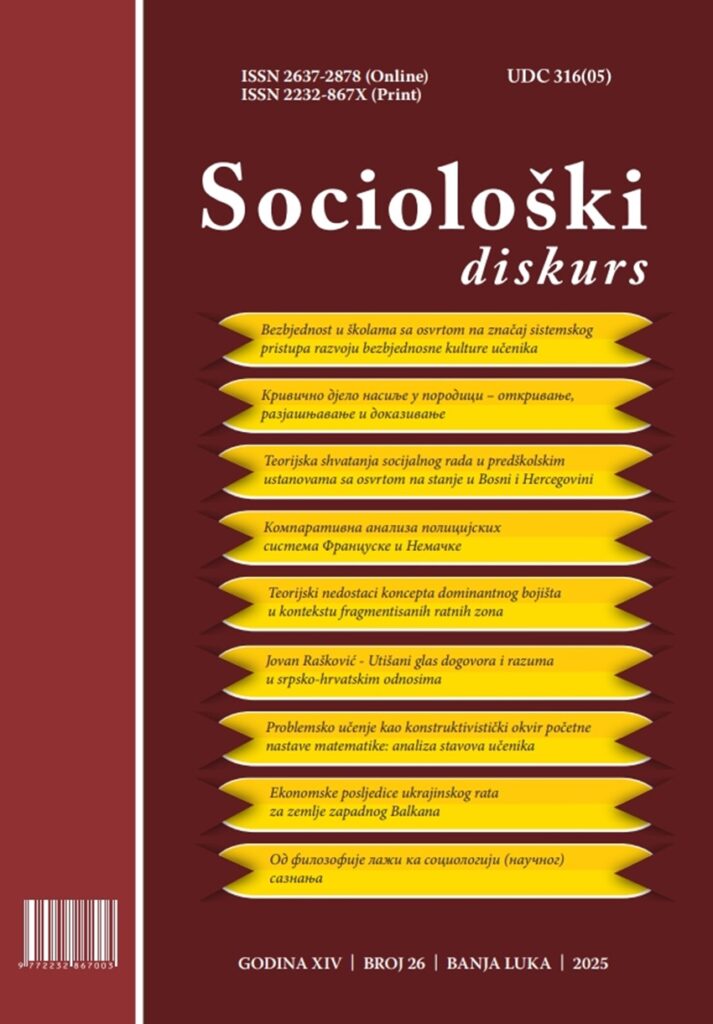PROBLEM-BASED LEARNING AS A CONSTRUCTIVIST FRAMEWORK OF EARLY MATHEMATICS TEACHING: AN ANALYSIS OF STUDENTS’ ATTITUDES
DOI:
https://doi.org/10.7251/SOCEN2526129LAbstract
In the early stages of mathematics education, the foundation for successful learning lies in the development of logical, critical, and mathematical thinking. Teaching mathematics effectively means fostering students’ ability to think independently and creatively, to solve problems and reason analytically. This research explores the impact of a problem-based, constructivist-oriented teaching approach on students’ attitudes towards mathematics. The study compares the perceptions of students who experienced traditional instruction with those who participated in a problem-based learning program. The aim of the study is to determine whether younger primary school students who have mastered mathematical content through a problem-based learning approach develop more positive attitudes toward mathematics than those instructed through conventional teaching methods. Using a Likert-type scale, student attitudes were assessed in terms of interest in mathematics content, perceptions of the teaching process, and the teacher’s approach. The results indicate statistically significant differences in favor of the experimental group, demonstrating that constructivist methods contribute not only to cognitive achievement but also to the formation of more positive emotional and motivational dispositions toward mathematics. The findings support the integration of constructivist principles into early mathematics instruction as a means to enhance student engagement and promote a deeper understanding of mathematical concepts. Recommendations include increasing the use of problem-based tasks and encouraging active, collaborative learning environments in which students construct knowledge meaningfully.
